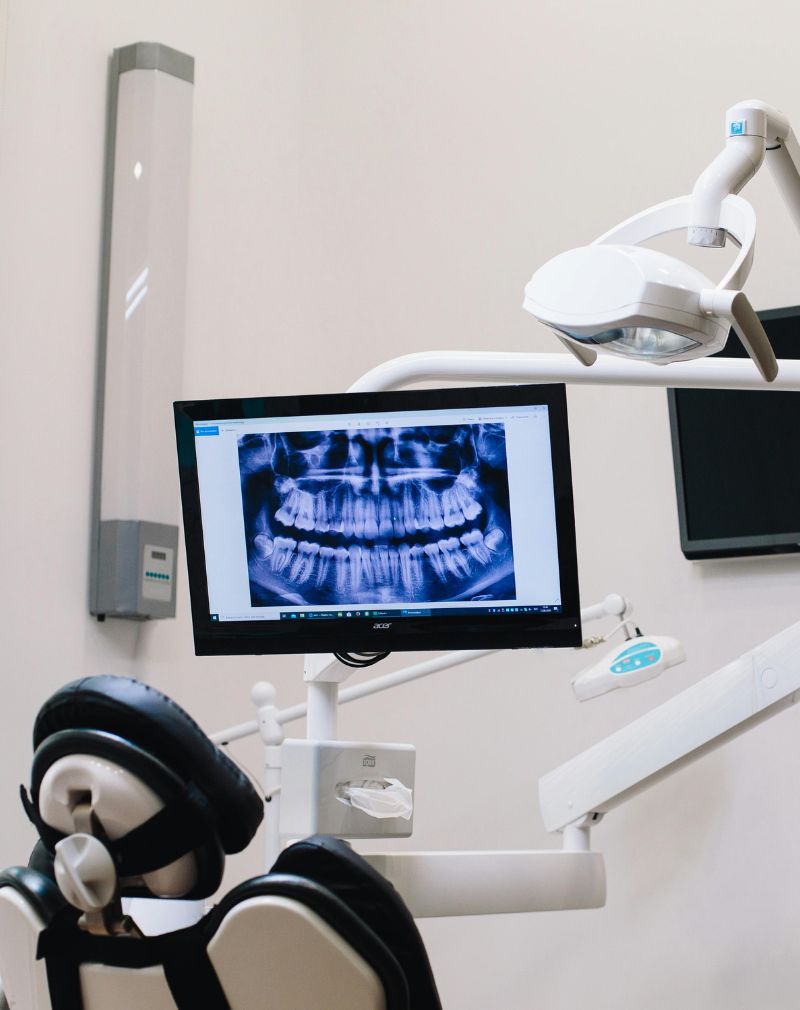You’re trying to chew. Suddenly, there’s that sharp click. Then a dull ache. Maybe it spreads into your ear or your temple. You press through the meal anyway, telling yourself it’ll pass.
It doesn’t.
That quiet, persistent pain? It’s not just annoying. It drains your patience. It messes with how you eat, speak, even sleep.
Nearly one in three people deal with some form of jaw discomfort. For many, it starts small. A click here, a morning ache there. But over time, it grows. It stops being occasional. It becomes your new normal.
At The American Wellness Center in Dubai Healthcare City, our Dental Health Department sees this every week. Clients who’ve been grinding through the pain for months. Some can’t open their mouth fully. Others can’t remember the last time they ate without flinching.
If your jaw feels like it’s fighting against you, you’re not exaggerating. You’re not overreacting. You’re dealing with something real: TMJ disorder. And no, you don’t have to live with it.
What Is TMJ Discomfort?
Your jaw isn’t just a hinge. It’s one of the most used joints in your body. You use it every time you eat, speak, yawn, or clench your teeth when the day gets too loud.
TMJ refers to the temporomandibular joint. It connects your jaw to your skull, just in front of your ears. When it works well, you don’t notice it. But when it doesn’t, you notice everything.
Pain. Clicking. Stiffness. Trouble chewing. Headaches that feel like they’re crawling out from your jaw.
Most people brush these signs off. They shouldn’t.
TMJ issues tend to show up between the ages of 20 and 40. And women are hit harder. Some studies suggest it’s twice as common in women as in men. Hormones might play a role. So does stress. So does the habit of keeping quiet when something hurts.
Who Gets It, and Why?
One in three adults will feel jaw discomfort at some point. For about 5 to 15 percent, that pain becomes serious. Not “take a painkiller and sleep it off” pain — but the kind that lingers and slowly chips away at your comfort.
What causes it?
Grinding your teeth, especially at night. A past injury to your jaw. Chronic conditions like arthritis or fibromyalgia. Even your hormones can change how your jaw muscles behave.
And then there’s stress.
Stress clenches your teeth. It tightens your jaw. It locks your body into tension until pain becomes the background noise of your day. Most people don’t connect their jaw pain to their stress levels. But we’ve seen it, again and again.
At The American Wellness Center in Dubai Healthcare City, we don’t just look at your jaw. We look at your life. Because sometimes, healing starts with understanding what you’ve been carrying.
Types of TMJ Issues
TMJ pain isn’t one-size-fits-all. It shows up in different ways, and most people don’t know which kind they’re dealing with. That makes it harder to fix.
Here’s what we see most often:
- A dull, clenched ache in your jaw muscles
This is called myofascial pain. It’s the most common form. It feels like tension that never quite leaves. - That click or pop you hear when you open your mouth
Harmless in some cases. But if it comes with pain or stiffness, it’s your joint telling you something’s off. - A sharper pain deep in the joint itself
This could be inflammation in the joint space — called arthralgia. Less common, but very real. - Moments when your jaw gets stuck or refuses to open fully
This is usually what people remember most. That sudden lock. The fear it brings. It can turn eating or talking into a daily gamble.
Pain is personal. And the way it shows up matters. That’s why diagnosis at The American Wellness Center doesn’t just look for a label. It listens to your story.
Smart First Steps at Home
You don’t always need a specialist on day one. There are things you can do right now — from home — that can ease your jaw tension before it spirals.
Start here:
- Eat soft: No tough meats, no chewy bagels. Let your jaw rest.
- Warm it, cool it: A warm towel in the morning. An ice pack at night. Simple. Effective.
- Stretch gently: No aggressive yanking. Just slow, controlled movements that invite your jaw to loosen.
- Breathe and unclench: Most people clench without knowing it. Stress lives in the jaw. Check in with yourself. Relax your face. Drop your shoulders. Exhale.
And if you wake up sore?
- A custom night guard can change everything
It cushions your bite, protects your joints, and interrupts the nightly grind.
At The American Wellness Center, we often start treatment by helping patients do less, not more. Rest. Reset. Let the inflammation settle before chasing solutions.
Professionally Guided Treatments
When self-care isn’t enough — and it often isn’t — there’s help. Real, targeted help that doesn’t just mask the pain but works to end it.
Here’s what the path might look like at AWC:
Physical Therapy That Gets Specific
Not a generic massage. We’re talking tailored jaw stretches, postural correction, and muscle release techniques that go straight to the source.
Stress Therapy for the Body’s Most Loyal Clencher
If your anxiety lives in your jaw, therapy can help calm it. We use cognitive behavioral techniques to change how your mind and muscles react to pressure.
Targeted Medications
Sometimes, short-term use of anti-inflammatories or muscle relaxants can give your body the breathing room it needs to start healing.
Advanced Options, When Needed:
- Botox: Not for beauty, but for pain. It relaxes overworked muscles that won’t shut off on their own.
- Joint injections: Steroids or hyaluronic acid, for joints that are stuck in inflammation mode.
- Arthrocentesis: A minimally invasive flush of the joint. It sounds intense. It isn’t. And it often brings fast relief.
- Jaw exoskeleton rehab: In complex cases, we use wearable devices that gently retrain motion and reduce long-term strain.
The key is choosing the right step — not all of them. And that’s what we help you figure out.
When Is Surgery Ever the Right Call?
Most people with TMJ don’t need surgery. That’s the truth.
But when pain refuses to leave, when your jaw locks too often, or when nothing else works — surgical options do exist. And they’re not as dramatic as they sound.
Common procedures include:
- Arthrocentesis: flushing the joint to relieve pressure and inflammation
- Arthroscopy: a small camera and instruments used to smooth or adjust the joint from the inside
These are precise. Targeted. And in skilled hands, they’re safe. But again — they’re the last step, not the first.
What’s Changing in TMJ Care
Jaw pain is no longer seen as minor. It’s being taken seriously — by both patients and the global medical community.
Some recent shifts:
- TMJ treatment is now a 614-million-dollar market. That growth tells a story. People want relief.
- Botox isn’t taboo anymore — it’s become a valid, effective tool.
- Dental splints are smarter, more comfortable, and better tailored.
- AI-driven diagnostics and jaw movement tech are helping us understand patterns that were invisible before.
At The American Wellness Center in Dubai Healthcare City, we stay current — not because trends matter, but because your relief does.
AWC’s Approach: What Support Really Looks Like
There’s no copy-paste plan for jaw pain. That’s why your care at AWC begins with listening.
Here’s what a real treatment journey often includes:
- A full evaluation with dental, physical therapy, and behavioral health experts
- A care plan that might include night guards, movement rehab, and stress therapy
- Access to advanced treatments if conservative care doesn’t go far enough
And in the meantime, we guide you on how to manage pain at home:
- Use heat in the morning, ice in the evening
- Rest your jaw — skip the gum, skip the steak
- Notice your clenching
- Stretch gently, every day
Pain gets quieter when you stop guessing and start listening to what your body’s been trying to say.
Let the Pain End Here
You’ve been chewing through discomfort. Talking through tension. Sleeping through clenched teeth. Maybe for months. Maybe for years.
TMJ pain doesn’t go away by pretending it’s nothing. And you don’t need to keep living with it.
At The American Wellness Center in Dubai Healthcare City, we’ve helped hundreds find comfort again — not through trial and error, but through clear answers and steady support.
If your jaw hurts, say something. We’re ready when you are.



